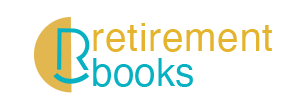Here is a book review taken from the magazine of Patria King’s Quest for Life Centre.The Quest for Life Centre provides wonderful support to people facing life threatening diseases.
By Richard Beliveau and Denis Gingras
This colourful and informative book, written by biochemist Richard Beliveau and fellow scientist, Denis Gingras is a very easy to read but fascinating explanation of the biochemistry of cancer cells and how naturally occurring chemicals in certain foods can alter the chemical environment in the body to inhibit the various stages of cancer cell growth. These two scientists refer to fruits and vegetables as the preventative non-toxic version of chemotherapy. The quote of Hippocrates, ‘let food be your medicine and medicine be your food’ is wonderfully exemplified in this book. There is a simple and thorough explanation of the formation of cancer.
By including some of the basic ingredients mentioned in this book in your diet, you can significantly help decrease the risk of cancerous cell growth in the body. The book provides some very thought provoking statistics on what are the real causes of cancer as opposed to many of the popular myths that people worry about so unnecessarily. It also makes these essential foods sound delicious and fun. There are no recipes in this book but of course, the Quest for Life Centre’s cookbook, Food for Life, is full of the ingredients their book promotes.
The book is based on scientific studies in food chemistry and whilst they still cling to the food pyramid as a model to demonstrate percentages of recommended food intake, it is full of fabulous information and tables. It is heavily illustrated and easy to read.
Beliveau explains in layperson’s terms how cancer develops, how tumours form spontaneously and how most cancers remain insignificant. He says, ‘preventing cancer means destroying these micro-tumours and blocking them from reaching a stage where they become clinically relevant.’ There are foods with biochemical capacity to block some cancers.
Here are some thought provoking statements from the book:
- Approximately one third of all cancers are directly related to diet.
- A diet containing three of four weekly servings of broccoli was shown to be sufficient to protect individuals from colon polyps. Cruciferous vegetables (brussel sprouts, broccoli, cabbage, cauliflower, kale) should be lightly cooked and thoroughly chewed when eaten in order to fully benefit from their anti-cancer potential. Chewing releases the active molecules.
- Freshly crushed garlic is by far the best source of anti-cancer compounds and should be preferred over supplements.
- The key to benefiting from the anti-cancer effects of soy lies in consuming about 50 grams per day of the whole food, such as raw (edamame) or dry roasted soybeans. Supplements containing isoflavones are not an acceptable alternative to the whole food and should be avoided.
- Colon cancer appears to be one of the cancers on which curcumin may have the greatest positive impact. The daily addition of a teaspoon of turmeric to soups, salad dressings or pasta dishes is a simple way of providing curcumin intake sufficient to prevent the development of cancer.
- Green Tea contains large amounts of catechins, compounds that boast many anti-cancer properties. To maximise the preventative effects afforded by tea, select Japanese green teas, allow for an eight-to-ten minute brewing period and always drink freshly brewed tea, and avoid Thermoses.
- Eating cranberries should be preferred over drinking cranberry juice.
- The best way to increase omega-3 levels in diet is to eat fatty fish (wild salmon, sardines, and mackerel) once or twice a week or add one tablespoon of freshly-milled flax seeds to your breakfast cereal.
- Eating two tomato sauce-based meals per week may lower your risk of developing prostate cancer by up to 25%.
- Citrus fruits are essential foods in cancer prevention; for their capacity to act directly on cancerous cells as well as their potential for enhancing the anti-cancer effects of other phytochemical compounds present in diet.
- The resveratrol present in red wine possesses powerful anti-cancer activity which may be responsible for the beneficial effects of wine on the prevention of certain cancers. Grape juice and cranberry juice contains resveratrol but at levels ten times less than wine.
- The daily consumption of 40 grams of dark chocolate (chocolate containing 70% cocoa mass) may have definite health benefits and should replace or reduce that of sugar and fat filled candies with no phytochemical content.
- Many herbs and spices used as seasonings, in particular ginger contain large quantities of molecules that act as anti-inflammatory compounds, which also reduce the risks of developing certain chronic diseases.
- Instead of replacing butter with margarine, use olive oil as much as possible as a source of dietary fat; you will benefit from its healthful lipids knowing that it also possesses anti-cancer properties of its own.
This popular book, first published in french and now available in English, has been jumping off the shelves at Quest.
Call today to order your copy from the Quest shop on 02 4883 6805 or visit www.questforlife.com.au/shop.
Cost is $35.00 plus postage and handling.

